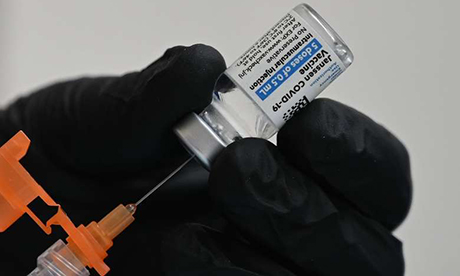As the death toll from COVID-19 approaches one million in the US alone, calls are growing for greater vaccine equity across the globe.
More than 10 billion vaccine shots have been administered worldwide as of mid-February. Yet the number of deaths is still rising. In addition, there are many regions of the world where people have not received any shots at all.
Now a number of Catholic groups are calling for greater vaccine equity worldwide.
Catholic Medical Mission Board (CMMB), based in New York, works in five of the world’s poorest nations. Four are in Africa; the fifth is Haiti. Mary Beth Powers, president and CEO of CMMB, said in wealthier nations 63 percent have had at least one vaccine dose. In poorer nations, she added, the rate is barely above 10%.
Countries with the worst vaccination rates are in sub-Saharan Africa, plus a handful of Asian nations west of India.
“It’s the issue of supply, it’s the issue of manufacturing, it’s the issue of distribution and the infrastructure needed to support distribution,” said Don McCrabb, executive director of the US Catholic Mission Association.
McCrabb also serves as convener of the Catholic Cares Coalition, a consortium of more than 60 national Catholic organisations. One of the coalition’s goals is to “advocate for the equitable distribution of the vaccine in the US and globally”.
Despite what is considered wide availability of Covid-19 vaccines in the United States, “the African American community have had some special issues” in terms of history and racism, McCrabb said.
If there is anything approximating a saving grace amid so much death and disease, it is that the average age of the population in poor nations is younger than that in wealthier countries. That may be a fact, but it is not an excuse as far as Powers is concerned.
To achieve vaccine equity, “distributing them becomes complicated”, she said.
“It’s just more work. You need a ‘cold chain’ (some of the vaccines lose their efficacy if not kept cold) and you need a plan, and you need education of the people. We’ve had issues about misinformation about vaccines in every country in the world, and people are nervous about vaccinations for a variety of reasons”.
Moreover, Powers said, “the recipe needs to be shared. There needs to be production in other parts of the world so that the vaccine can get out quickly enough”.
In poorer nations “the first equity question was protecting ourselves,” she added. “It’s shocking but many hospitals and schools don’t have hand-washing stations. That helps the health workers and the public protect themselves as much as possible”. But personal protective equipment is in short supply.
“The next equity question was on how the vaccines are distributed,” Powers said.
Sources
